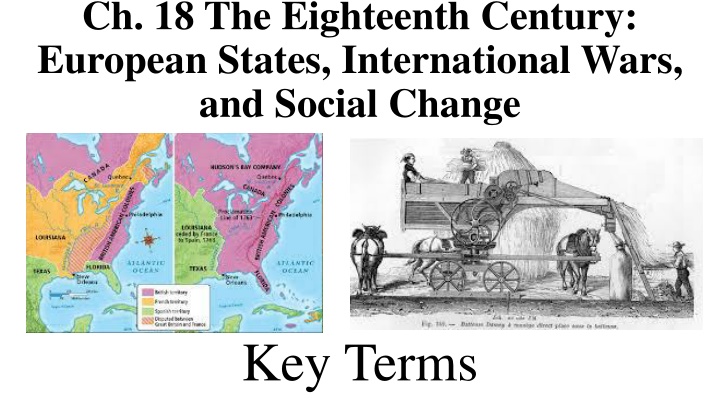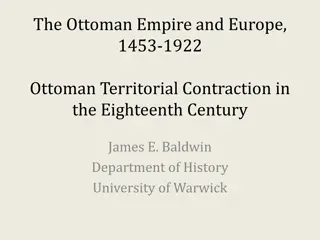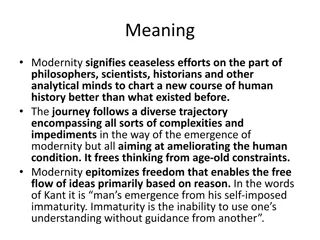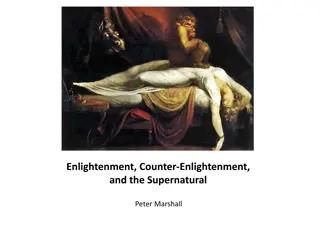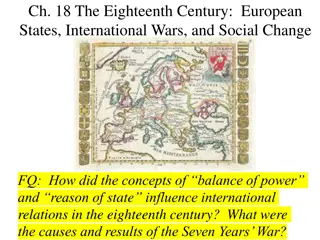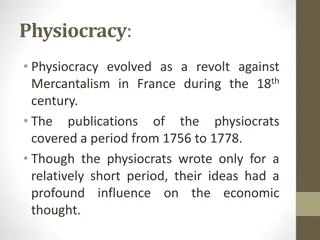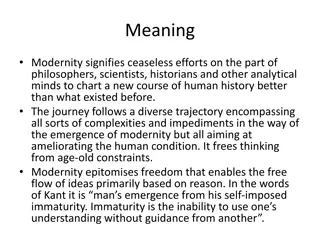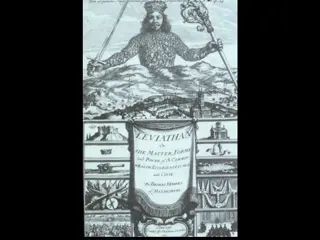European Enlightenment and Social Changes in the 18th Century
The 18th century witnessed significant changes in European states, marked by the emergence of natural laws, natural rights, and enlightened absolutism. Concepts such as patronage, balance of power, and primogeniture also played pivotal roles. The era saw the implementation of reason of state and the agricultural revolution, shaping societal norms and governance practices.
Download Presentation

Please find below an Image/Link to download the presentation.
The content on the website is provided AS IS for your information and personal use only. It may not be sold, licensed, or shared on other websites without obtaining consent from the author.If you encounter any issues during the download, it is possible that the publisher has removed the file from their server.
You are allowed to download the files provided on this website for personal or commercial use, subject to the condition that they are used lawfully. All files are the property of their respective owners.
The content on the website is provided AS IS for your information and personal use only. It may not be sold, licensed, or shared on other websites without obtaining consent from the author.
E N D
Presentation Transcript
Ch. 18 The Eighteenth Century: European States, International Wars, and Social Change Key Terms
natural laws (p. 529) A body of laws or specific principles held to be derived from nature and binding on all human societies even in the absence of written laws governing such matters.
natural rights (p. 529) Certain inalienable rights to which all people are entitled, including the right to life, liberty, and property; freedom of speech and religion; and equality before the law.
enlightened absolutism (p. 529) An absolute monarchy in which the ruler followed the principles of the Enlightenment b introducing reforms for the improvement of society, allowing freedom of speech and the press, permitting religious toleration, expanding education, and ruling in accordance with the laws.
patronage (p. 531) The practice of awarding titles and making appointments to government and other positions to gain political support.
balance of power (p. 539) A distribution of power among several states such that no single nation can dominate or interfere with the interests of another.
reason of state (p. 539) The principle that a nation should act on the basis of its long- term interests and not merely to further the dynastic interests of its ruling family.
primogeniture (p. 544) An inheritance practice in which the eldest son receives all or the largest share of the parents estate.
infanticide (p. 544) The practice of killing infants.
agricultural revolution (p. 544) The application of new agricultural techniques that allowed for a large increase in productivity in the eighteenth century.
enclosure acts (p. 547) Laws enacted in eighteenth-century Britain that allowed large landowners to enclose the old open fields, thereby combining many small holdings into larger units and forcing many small farmers to become tenant farmers or wage laborers on the large estates.
cottage industry (p. 549) A system of textile manufacturing in which spinners and weavers worked at home in their cottages using raw materials supplied to them by capitalist entrepreneurs.
tithes (p. 551) A portion of one s harvest or income, paid by medieval peasants to the village church.
